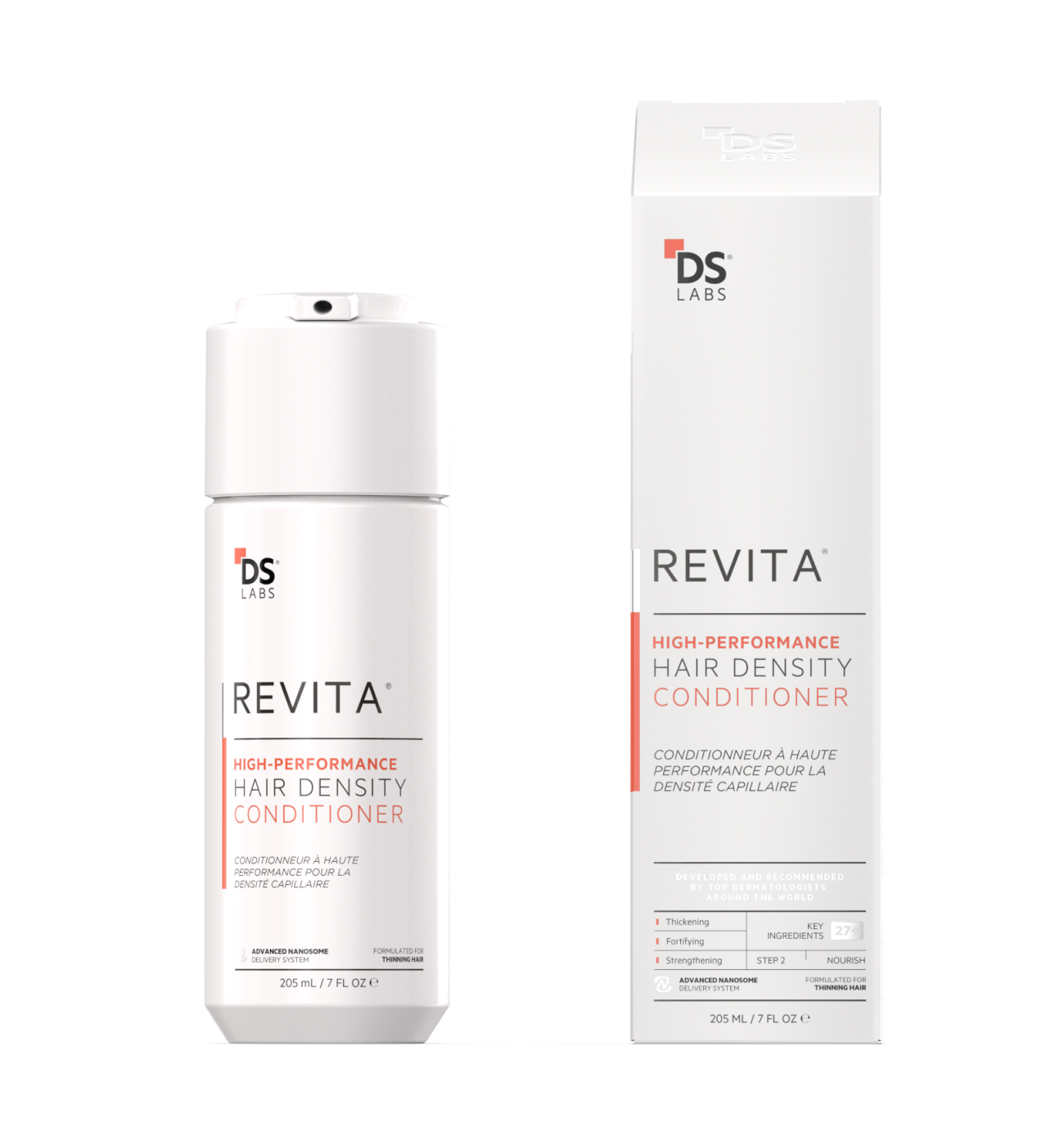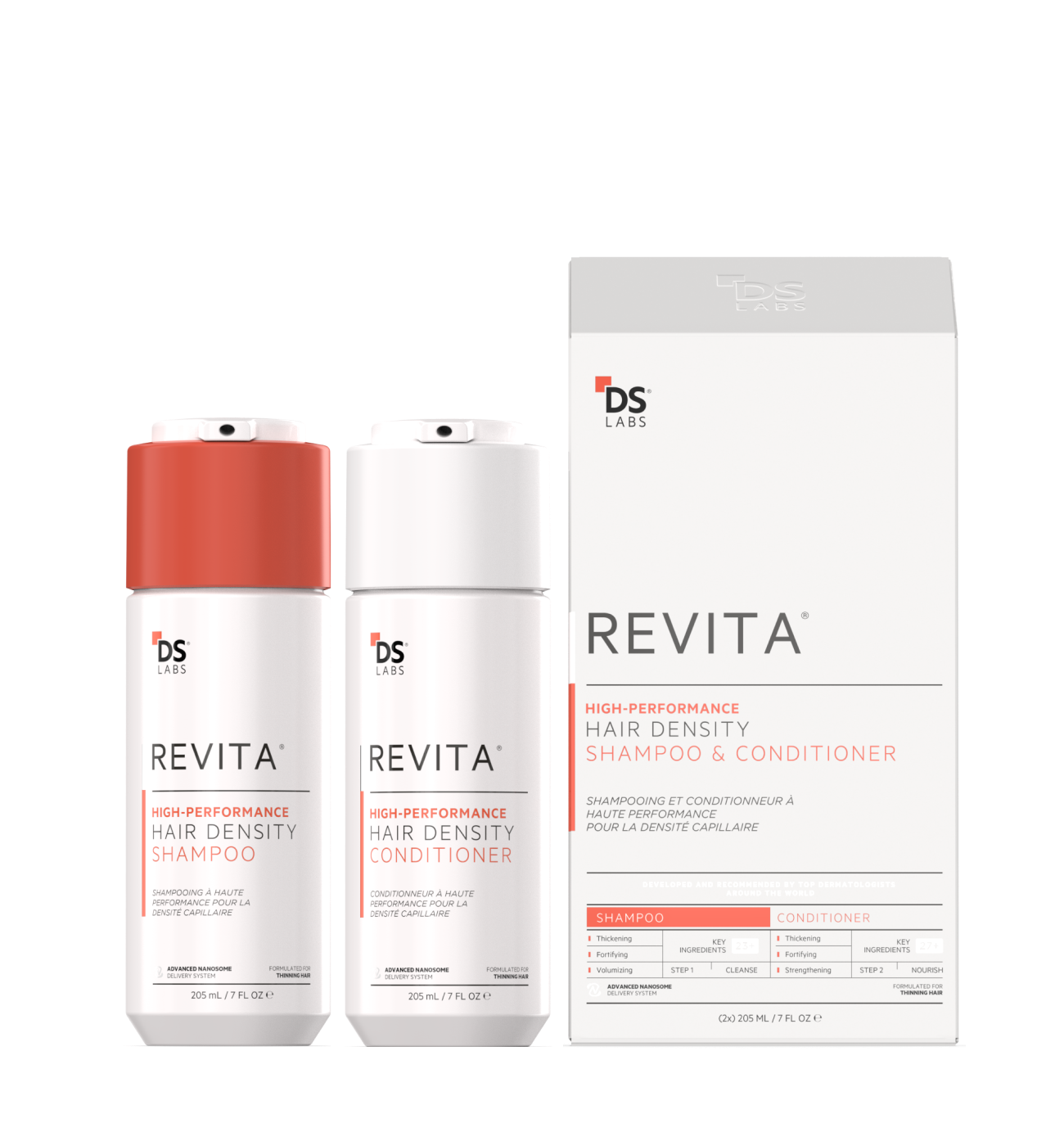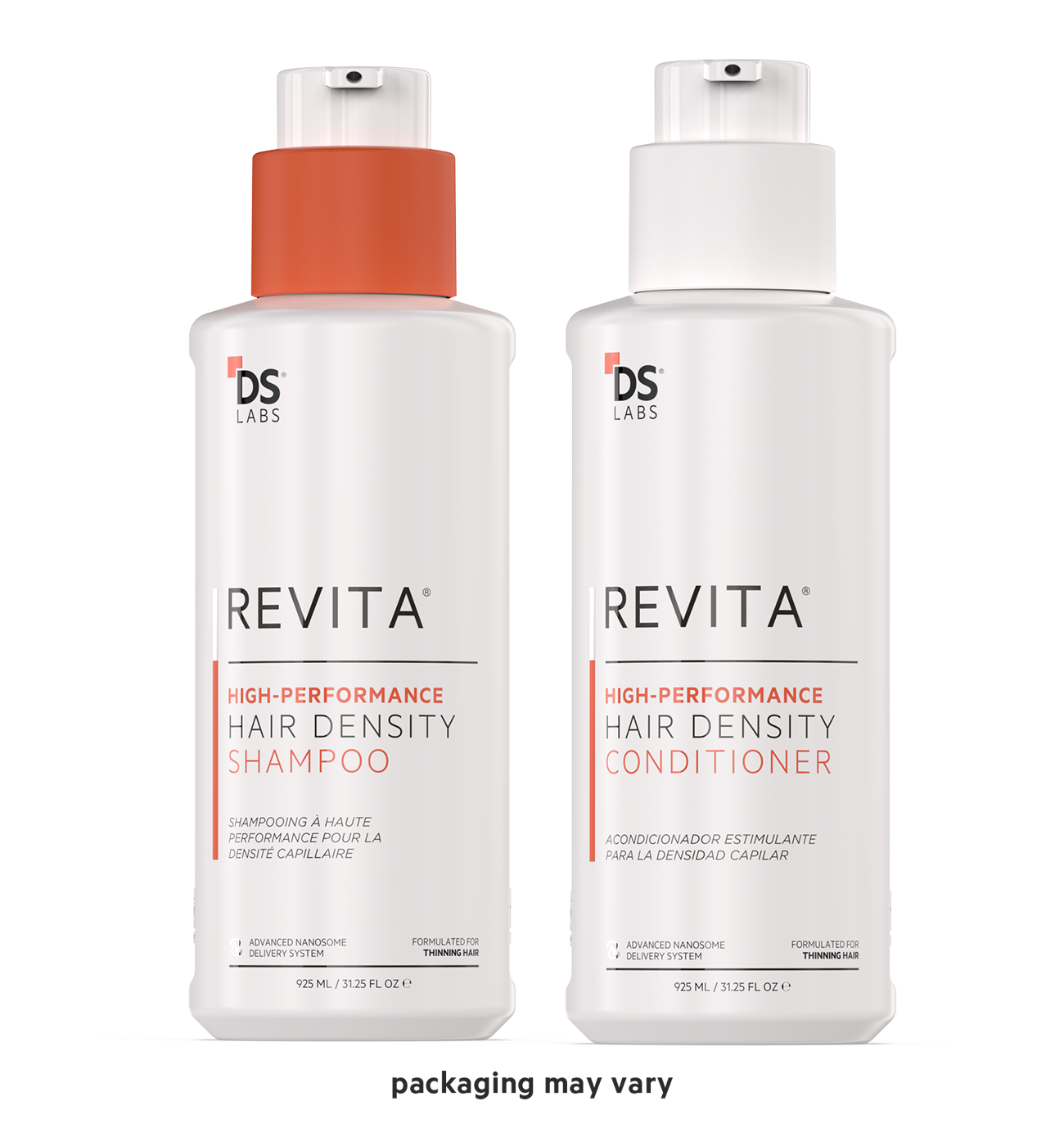We have a surge of hormones during pregnancy, which can cause many changes in our body — including our hair growth cycle. Understanding the changes it may bring can help you maintain your tresses even after the baby’s arrival.
How Does Hair Change During Pregnancy?
The hair cycle is divided into four stages: anagen (growing), catagen (transitioning), telogen (resting), and exogen (shedding).
Pregnancy changes the regular functioning of this cycle.
When you’re pregnant, the exogen or shedding cycle is put on hold due to rising estrogen levels. It causes your hair to grow faster and fall out less, which explains why some women get thicker, more lustrous hair when they’re pregnant.
Pretty cool, right?
Well, it doesn’t last long.
These changes are not permanent. After you have the baby, your estrogen levels will go back to normal. While the rise in estrogen helped you get better hair, there’s a good chance that you’ll start finding more hair in your drain, comb, or pillowcase after giving birth.
It sounds alarming, but keep in mind that pregnancy doesn’t help you grow more hair, it just delays the shedding phase, so you keep your strands for a bit longer. So, any shedding you experience nine months later will be normal.
That said, there are ways to keep your hair in its prime and minimize hair loss during pregnancy. Read on to know how.
8 Effective Ways to Care for Your Hair During Pregnancy
Here’s what you can do to take care of your hair during your 9 months of pregnancy.
Avoid Chemical Treatments
Give your hair a break from chemicals and dyes until after you give birth.
Why?
Because the harmful chemicals found in these treatments might be absorbed by the scalp and enter your bloodstream, which can affect you and your baby. It can also cause birth ailments, including low birth weight. So, make sure to steer clear of chemical treatments until after the baby is born.
Avoid Heat-Based Styling
Avoid using heat-based tools to style your locks.
Getting a glamorous blowout or those gorgeous beach waves may feel like the stuff of dreams — especially if you’re having mood swings — but they can cause damage by making your hair dull, dry, and prone to split ends.
Avoid Tight Hairstyles
Tight hairstyles can put stress on your scalp and strands, which can make your hair weaker and cause physical damage to your delicate strands.
So, make sure to avoid hairstyles that pull the hair tightly — especially during pregnancy. The hormonal imbalance paired with tight hairstyles that tug at the root can intensify hair loss, which can be a challenge to recover post-pregnancy. It can also aggravate headaches so wear loose hairstyles, or better yet, let your hair loose.
Choose the Right Shampoo and Conditioner
Choosing the right hair care products can help you keep your strands looking their best.
Use mild products with natural cleaning agents to keep your hair clean and pleasant-smelling. Look to ingredients like keratin, vitamin E, aloe vera, and amino acids to nourish your hair. A formula that smooths out frizz and gives your hair the nutrients it needs to thrive will give your hair much-needed TLC.
Pro tip: After applying conditioner, detangle your hair using your fingers or a wide-toothed comb. It will help you avoid knots and hair damage.
De-Stress and Relax
Don’t let the adverts fool you, pregnancy is not all sunshine and rainbows. A huge chunk of it is worrying if the baby in your womb is doing alright.
At times, you will feel overwhelmed. When that happens, take a step back and relax.
Indulge in self-care and spend time doing activities you love such as snuggling on the sofa with your favorite book or meditating. These will help calm the raging thoughts in your head and relax. Since stress can exacerbate hair loss, it will also help you keep your precious strands.
Eat a Balanced Diet
Eating a balanced diet — one rich in protein, iron, and other essential nutrients — keeps you and the baby healthy. But that’s not all – it can also give your hair and skin a boost, which is definitely a plus.
Include the following for a hair-healthy diet:
- Chicken and turkey to keep your hair thick and healthy
- Cinnamon boosts blood flow to your hair follicles
- Eggs help hair grow
- Guava keeps your hair from breaking
- Greek yogurt strengthens and helps your tresses grow
- Oysters give your hair the zinc it needs to thrive
- Salmon keeps your hair shiny and full
- Spinach keeps your hair moisturized
- Sweet potatoes fight dull, dry hair
If you’re having trouble incorporating all these food items into your daily diet, talk to your doctor to see if you can use supplements.
Get Oil Massages
Massaging your hair and scalp can boost hair health by strengthening the roots of the hair, improving blood circulation in the scalp, and encouraging hair thickness. It can also relax and calm your scalp which can help you sleep better.
As you can see, this relaxing treat is non-negotiable.
You can massage your hair and scalp with natural oils for maximum results. Olive oil, almond oil, and coconut oil are great options. Just make sure to warm the oil before applying it for a more relaxing experience. Wrap a warm towel on your head for the best results.
Pro tip: Mix in 2 to 3 drops of essential oil for some aromatherapy and additional hair benefits.
Get Regular Trims
Trimming your hair is essential even on normal days, but it’s doubly important when you’re expecting since pregnancy can affect the texture of your hair.
Trimming your hair regularly during pregnancy can help you get rid of split and rough ends — which are known to travel up your hair shaft and cause damage to the look and feel of your hair. It will also help you control breakage and facilitate hair growth by preventing hair thinning.
Wrapping Up
Pregnancy can take a toll on your hair health, but proper hair care can keep your mane looking its best. Stay on top of your hair care regimen even while pregnant. If you’re tired, enlist the help of your significant other to enjoy lustrous looks while you’re expecting and even after the baby is born.














